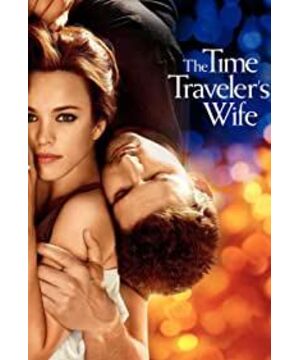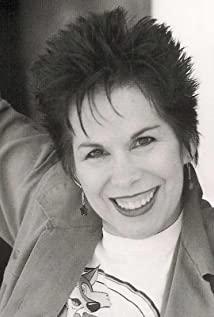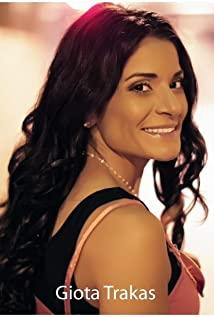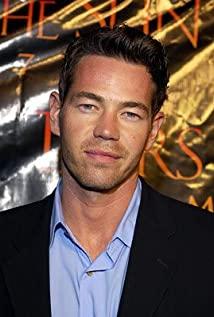I watched the movie version two years ago, and I finished reading the novel version in the last few days. I revisited the movie version last night.
Generally speaking, I think that the novel is written in a more life-like manner, the language is quite casual, and there are many places with a comedy color, which is interesting and playful, but at the end, it is a rather tragic ending. Due to the limitation of space, the film has cut a lot, and showed the main plot artistically. The tone before the ending is almost quite sad, and most of the colors are also very dim. Some details, including the ending, have been rewritten to make the story warm and comfortable. full of hope.
in particular--
(1) The novel adopts the tone of Claire and Henry's cross self-narrative. Compared with the third-person narration of the film, the novel is more intimate and charming. It is suitable for Henry to travel back and forth repeatedly, and the detailed descriptions of various time travels that are not based on time periods and occasions have become less obtrusive, and more logical and excusable. The latter, the movie can't do it. If there are as many abbreviations as arranged in the novel, the whole movie will become quite incoherent, like a video collection of various films that are not closely connected. , so, in addition to the space limitation, this also prompted the need to cut down in the process of filmization. The third-person narrative of the movie has an advantage, that is, you have the perspective of God, overlooking all living beings, and you can better understand the development of each character. The self-narrative of the novel makes people fall into the story at once, and experience the mood changes and emotional ups and downs of each character as if they were on the scene, and it is easier to rise or fall with the emotions. And the God's perspective of the movie allows me to try to think about the background and purpose of the story while watching the dynamic pictures on the screen.
(2) Many characters were deleted from the movie, including Jin Tai, Mark's wife Sharon and their children, Doctor Ben, Jason, Kendrick's wife and their children, Celia, Ingrid, Luo from the library Berto and Matt, Claire's housekeeper Eta and chef Neil, etc., cut out many episodes, such as Henry's first visit to Claire's house, Claire's party with friends, Claire and Gomez between Ambiguity, Henry's journey on the day Claire gave birth, Henry's self-defeating after being disabled, a crimson paper bird built by Claire to inspire Henry, Claire's first sex with Henry on his eighteenth birthday, Lucille's death , Big Henry and Little Henry visit the Chicago Museum at night, etc., as well as the character lace that disappeared because the relevant characters were deleted, including Henry and Jin Tai, Henry and Ingrid, Ingrid suicide. Of course, these inconveniences and psychological burdens for the type of time traveler have played a role in explaining, but they have little to do with the development of the main line of the story, and the deletion does not affect the logic of the main plot at all.
(3) The movie rewrote part of the plot - for example, Henry and his mother had a car accident, the novel was due to a rear-end collision, and the scene of the car accident was quite tragic. The movie affected the warmth of the whole story because the picture was not too bloody, and rewrote it as little Henry happened in the car Crossing, the screams distracted the mother's attention and caused a violent collision with the oncoming car, in fact this rewrite will potentially upset Henry when he grows up, because it was his actions as a child that made his mother inattentive driving. When an accident occurs, he will have a greater helplessness and sadness for time travel buried deep in his heart. For example, in the novel, Henry appears on the lawn of the young Claire's house after being shot, and bumps into Philip and Mark at the same time. In the movie, they run away after being shot and travel back. This is because they don’t want to make the relationship between the characters in the 100-minute-long film too complicated, and the non-original fans find it confusing and incomprehensible—for example, in the novel to prove to Kendrick that time travel The existence is to predict that the baby that Mrs. Nancy is about to give birth to has Down syndrome, and the movie is changed to predict the success of Kendrick's project funding application, and the setting in the novel emphasizes the time traveler's The sadness, that is, "can only be passed through and cannot be changed", the movie deleted this very important plot, I think it is to make this sadness more concentrated in the development of the main line of the hero and heroine.
(4) The most rewritten place is undoubtedly the ending. In the novel, after Henry's death, Claire told Elba that her father would come back on August 27, and Claire waited for forty-six years, until she was dying, and then waited for Henry's first return. It can't help but lament that fate is unfair to this point. I don't think the ending of the novel is very warm, but I think it's the moment when the flames were raging, pouring cold water on the reader's head, suffocating with sadness that is as vast as the sky. In addition to making people feel their firmness in love, I also feel that Claire is too pitiful. And the ending of the movie is much warmer. Henry appeared briefly when Elba was nine years old. Claire ran all the way and finally caught up with her and kissed and hugged. At that time, Elba's smile awakened Claire's hope for life and the future, and Henry would definitely come back again and again. Especially in that scene, Claire rushed out of the villa, carrying her skirt, across the big lawn, through the woods, along the small slope, running all the way, really, I can't resist this kind of obsession and waiting for love. The shock and impact brought by him made his eyes moist all of a sudden. And thinking of another similar scene in the movie - six-year-old Claire rushing to the lawn with a big bag of stationery - it's hard to refuse the warmth! There is no difference between the two endings, of course, let me choose, I prefer the ending of this version of the movie.
(5) The details of the novel in the 460 pages are extremely rich, and the main line shown in the film, after being processed by artistic techniques, in just one and a half hours, first enhances the mood, and then starts from Claire. The excitement of the first encounter drops in an instant, highlighting Claire's various small dissatisfactions, the disappearance of Henry without any warning, the loneliness of being left, the cramped studio and restricted career path, the frequent miscarriages - these are naturally in the novel. There are a lot of descriptions, but the heroine's acting skills are online, with the capture of close-ups and quick editing of the camera, these dissatisfaction are vividly expressed - and finally from the moment Henry is about to die, the whole film is bathed again. Sunshine's home has returned to the position of warmth, and at the moment when Claire runs, the ultimate climax! The movie has cut a lot, but it can tell such a story simply and neatly. I think I am very satisfied!
(6) Although the language of the novel itself is relatively simple, the various details of the novel are supplemented, and it is particularly conspicuous that all the large and small pits buried by Niffinger in the previous article can be found at the end of the novel. Filling it all in one after another makes the story absolutely complete, which is rare and sets it apart from your average bestseller and soap opera story. Everything in the novel depends on the imagination of the reader, and when the acting of the hero and heroine of the movie is online at the same time, everything becomes quite wonderful, to name a few examples - Henry crosses to the lawn at the wedding, watching when Claire is jealous as a child , laughed involuntarily—Henry crossed over to the subway to meet his mother, but he couldn’t rashly tell the matter, his face was full of entanglement and melancholy—Henry held the lottery ticket in front of the TV and waited for the lottery, with a proud look on his face And pretending to be ignorant, he changed his tone and sentence to announce the winning number - when Henry suggested tearing up the winning ticket, Claire's subconscious action and a "No" immediately stopped him - Claire was wearing Henry's engagement The ring, but a resolute No came out of his heart - and Claire's few Nos at the last moment when Henry was about to leave!
(7) There are many touching scenes in the movie, in addition to Claire running down the hill, there is also Henry meeting his mother on the subway, chatting a few words, and the brief dialogue before leaving——
"Your son must love you very much!"
"Make sure that girl knows how much you love her!"
And on Christmas Eve, Elba wants to open the presents ahead of time, Claire asks if the cupboard is locked, the knowing smile between Elba and Henry, etc.
(8) There are also some wonderful sentences in the popularized language of the novel, such as—
"It's getting dark now and I'm tired too. I love you forever and ever. Time is nothing."
"I'm sitting at the head of our bed clutching that plaid shirt that still smells like Henry, and I'm going to inhale his smell."
"We stood there, two inarticulate American males, the heat of their breaths coming together in front of us, and there was no need to say any more."
"My whole life has been a long déjà vu."
"He turned to me, and I could see that he didn't recognize a single thing in this room, and the dagger of reality pierced deep into my heart: this museum of all the baubles, all the little mementos of our past, to him It's like a stack of love letters in front of an illiterate."
(9) Both novels and movies involve a problem - time does not develop linearly forward, but in a multi-dimensional non-linear, so it is not a simple cause and effect, and can only be experienced and cannot be changed, all attempts to modify the part The idea of a butterfly effect in the details is wild, which is similar to two other films I love — Interstellar and Arrival. The final emotions embodied by the three are not the same. The emotions of "Interstellar" are quite complicated, while "Arrival" is actually not very sad, and "The Time Traveler's Wife" has devoted almost all of its energy to it. Interpretation of a love story based on time sadness.
(10) In addition, "Claire grabs Henry's cock" often appears in the novel, and there are quite a few detailed descriptions of the cloudy and rainy scenes. However, the novel is a bit long, isn't it?
(11) Rine Maria Rilke's more frequently quoted verses, including "Duino Elegies", are also interspersed just right!
View more about The Time Traveler's Wife reviews











